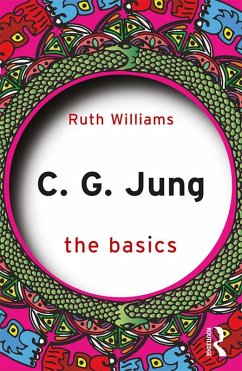Dieser Download kann aus rechtlichen Gründen nur mit Rechnungsadresse in A, B, BG, CY, CZ, D, DK, EW, E, FIN, F, GR, HR, H, IRL, I, LT, L, LR, M, NL, PL, P, R, S, SLO, SK ausgeliefert werden.
'The basics are the essential facts or principles of a subject. This is what Ruth Williams has brilliantly given us in relation to the work of C.G. Jung, analytical psychology, Jungian analysis and Jungian Studies. Her book is accessible, beautifully structured and presented. She really knows her way around the Jungian world and can play the role of guide with consummate ease.' - From the Foreword by Andrew Samuels, Professor of Analytical Psychology, University of Essex
"Ruth Williams discusses the unconscious, the structure of the psyche, the archetypes, and individuation, as well as psychological types, dreams, alchemy, and the vexed question of Jung's political engagement in a way that will, I hope, encourage the reader to look more closely at what Jung has to offer us in the twenty-first century. There are many different ways in which to approach Jung: through his indebtedness to German culture, for instance, or through applying his conceptual tools in the field of literary criticism or film studies, or through studying the institutional development of analytical psychology and the personalities involved in the Jungian movement. What is valuable about the account offered in this book is that it provides an overview of the 'basics' of Jungian thought in a way that is both helpful and clear. Jung once described the second part of Goethe's Faust as 'a link in the aurea catena' - i.e., the Golden or Homeric Chain - 'which has existed from the beginnings of philosophical alchemy and Gnosticism down to Nietzsche's Zarathustra'; in engaging with this material Jung found that it was 'unpopular, ambiguous, and dangerous', and he believed he had embarked on 'a voyage of discovery to the other pole of the world'. As one embarks on one's own journey into Jung, it is good to have a guide such as this in one's hands." - Paul Bishop, William Jacks Chair of Modern Languages at the University of Glasgow, UK; co-editor of The Ecstatic and the Archaic (Routledge)


